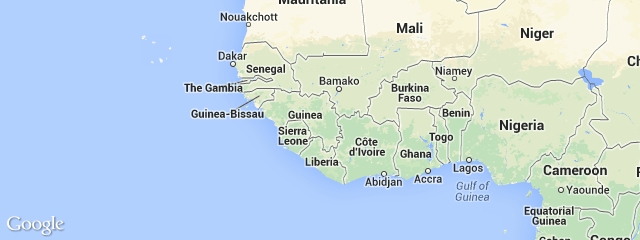
The current outbreak of Ebola has affected Western Africa
The Center for Disease Control has warned Americans to not travel to the nations of Liberia, Guinea, and Sierra Leone where over 729 people have died from the worst outbreak of Ebola in history.
While the mode of spread of Ebola has been through contact with body fluids, there is always a possibility that the virus has mutated to where it can be caught through more casual contact. The US physician who was transported back to the United States last night maintained all precautions that the World Health Organization (WHO) and the CDC maintain. While breaks in technique are possible, the other American brought back was involved in the decontamination of Ebola, also maintaining precautions.
Emory University Hospital has built a special isolation unit in collaboration with the CDC to treat the two Americans. In a statement, Emory said its “physicians, nurses and staff are highly trained in the specific and unique protocols and procedures necessary to treat and care for this type of patient. For this specially trained staff, these procedures are practiced on a regular basis throughout the year so we are fully prepared for this type of situation.”
The two missionary workers,Dr. Kent Brantly and Nancy Writebol were in “stable but grave” condition in Liberia on Thursday morning, according to a news release from the Christian aid organization Samaritan’s Purse.
CDC Director Tom Frieden said Thursday that the decision to evacuate sick aid workers was a “very complicated question,” but that it was up to the aid organizations.
“There is the potential that the actual movement of the patient could do more harm than the benefit from more advanced supportive care outside the country,” Frieden told reporters in a conference call. “We would certainly work with them to facilitate whatever option they pursue.”
In a statement, Samaritan’s Purse said Writebol had received treatment from an “experimental serum” that arrived in Liberia on Wednesday. Samaritan’s Purse said Brantly had asked that the serum be given to Writebol.
“There was only enough for one person. Dr. Brantly asked that it be given to Nancy Writebol,” Franklin Graham, president of Samaritan’s Purse, said in a news release.
Brantly received a unit of blood from a 14-year-old boy who had survived the disease, the organization said, as thanks from his family for saving his life.
“We are not going to treat or vaccinate our way out of these outbreaks,” Frieden said. “We’re going to use the traditional means that work: identification, isolation, contact tracing … and good, meticulous infection management.”
There are currently several vaccines in various stages of production, none have been tested on humans.
